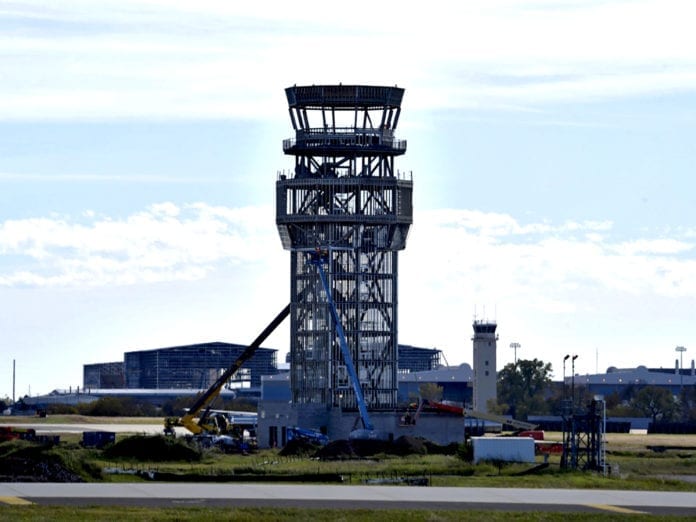
Tinker Air Force Base, an important part of Oklahoma City economy since 1941, should remain in that position for years to come as the maintenance hub for the KC-46A Pegasus aircraft.
When completed, the 158-acre Pegasus complex will have 14 hangars and create about 1,300 jobs. The first hangar debuted in October.
The base, originally known as the Midwest Air Depot, was renamed in 1948 in memory of Maj. Gen. Clarence L. Tinker of Pawhuska. Tinker, the first Native American to achieve that rank, died in June 1942 while commanding a squadron of LB-30 Liberators during World War II against Japanese forces on Wake Island.
The Tinker base continues to play an important role in the U.S. defense program, particularly with the Pegasus facility.
“With a total military construction plan of $736 million over several years, the base will … have an economic impact in Oklahoma,” says Nevardo Cayemitte, Tinker’s chief of media operations. “Tinker will see an influx of airmen and civilians moving here and the addition will have regular, positive impacts on the local economy.”
Cayemitte says the Pegasus has multiple capabilities, such as transporting passengers and cargo, providing medical evacuations of patients, and refueling airborne fighters and other smaller craft. The Pegasus, a converted Boeing 767 commercial aircraft, features an advanced refueling boom and tanks that can hold 210,000 pounds of fuel.
The maintenance facility is on what used to be the adjacent General Motors assembly plant, which Oklahoma County residents voted to buy in 2008 with $71.5 million in general obligation bonds. There is a 50-year lease-purchase agreement between the county and the Air Force.
“With over 170 of these aircraft in our inventory, we will be postured to refuel our Air Force fleet and support our war fighters for decades to come,” Cayemitte says. “This is an exciting time for Tinker as we prepare to take on our new mission soon, but more so for the readiness of our military and the security of our country.
“The KC-46A Pegasus campus was made possible through years of teamwork through the hard work and support of numerous stakeholders in the community, airmen past and present at Tinker, and at the Air Force and Department of Defense levels.”
Tinker employs more than 26,000 military and civilian personnel, creates more than 33,000 secondary jobs and has a statewide economic impact of more than $3.5 billion, Cayemitte says. The base covers more than 4,000 acres, leases more than 800 acres and has more than 450 buildings on the property.
Tinker played an important role in World War II, the Korean War, the Berlin and Cuban crises, and the Cold War.
“Tinker’s selection to maintain the KC-46A assures the long-term viability of its mission of delivering war-fighting capability for combatant commanders, which airmen and civilians here in Oklahoma City have been doing for decades,” Cayemitte says.

























